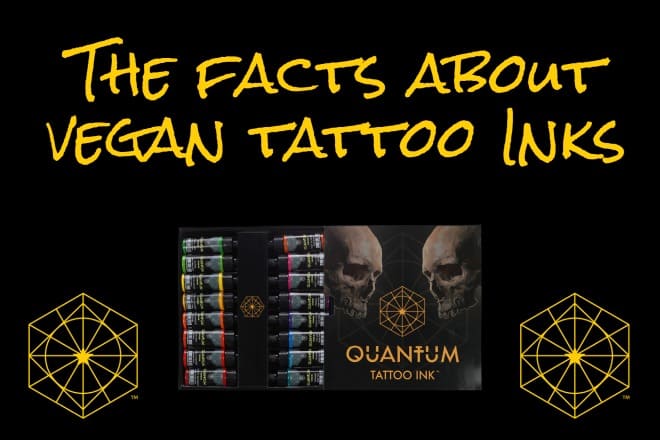
Okay, so you’re thinking about getting a hand tattoo?
Awesome!
But, like, will it actually last?
I get it.
Hand tattoos are notorious for fading.
And nobody wants to drop serious cash on ink that disappears in a year.
You’re probably wondering what tattoo inks are even worth considering.
Let’s dive into what makes some tattoo inks better than others, especially for those tricky hand placements, so you can make an informed choice and get a hand tattoo that stays looking fresh.
Hand Tattoos: Why Ink Choice Matters
Hands are rough.
Seriously.
Think about everything your hands do.
Washing, working, constantly exposed to the sun.
All that friction and UV exposure?
It’s a recipe for tattoo fade.
That’s why choosing the right tattoo ink is crucial.
It’s not just about the color; it’s about the pigment quality, the carrier solution, and how well it holds up over time.
What to Look for in Long-Lasting Tattoo Ink
Okay, so what actually makes a tattoo ink good for hands?
Here’s the lowdown:
- High Pigment Load: More pigment = more staying power. Look for inks with a reputation for being heavily saturated.
- Lightfastness: This means the ink resists fading when exposed to light. Check the manufacturer’s specs.
- Reputable Brands: Stick with well-known, respected brands in the industry. They’ve usually got the research and development to back up their claims.
- Consistency: The ink should be easy for your artist to work with. A good consistency ensures even distribution and better healing.
Best Tattoo Inks for Hand Tattoos: My Top Picks
Alright, let’s get down to brass tacks.
These are some brands I’ve seen artists consistently recommend for lasting hand tattoos.
Keep in mind, this isn’t an exhaustive list, and personal preferences vary, but these are solid starting points:
- Dynamic Black: A classic for a reason. It’s super dark, holds well, and is widely available. I’ve seen it used for bold outlines and solid shading on hands with great results.
- Eternal Ink: Known for its vibrant colors and smooth consistency. They’ve got a huge range of shades that are also known for their longevity.
- Intenze: Another industry heavyweight. Intenze offers a wide variety of colors and black/grey washes, all formulated for long-lasting vibrancy.
- Solid Ink: This brand is known for its highly concentrated pigments, which can lead to a longer-lasting tattoo.
- World Famous Ink: Claims to have a high pigment concentration and a smooth consistency, making it a popular choice for artists.
Important Note: Always do your research and talk to your artist! They’ll have their own preferences and experiences. Also, make sure the ink is sterile and properly sealed before use.
Beyond Ink: Factors That Affect Tattoo Longevity
It’s not just the ink, though.
Here’s what else impacts how well your hand tattoo holds up:
- Artist Skill: A skilled artist knows how to properly apply the ink to ensure it’s deposited at the right depth.
- Aftercare: Follow your artist’s aftercare instructions religiously. This includes keeping the tattoo clean, moisturized, and protected from the sun.
- Sun Exposure: Sun is the enemy of tattoos. Use sunscreen (SPF 30 or higher) on your hand tattoo every single day, even on cloudy days.
- Lifestyle: If you work with your hands a lot, your tattoo might fade faster. Consider placement and design accordingly.
Real Talk: Hand Tattoo Fading is Real
Let’s be honest: even with the best ink and perfect aftercare, hand tattoos will fade over time.
It’s just the nature of the beast.
Expect to need touch-ups eventually.
Think of it as maintenance, not a failure.
Tattoo Placement on the Hand: Areas to Consider
Where you get your tattoo on your hand matters.
Areas with more friction, like the palms or inner fingers, will fade faster.
The tops of the hands and outer fingers tend to hold ink better.
Talk to your artist about placement options and how they might affect longevity.
FAQ About Hand Tattoo Ink
- Q: Are some colors better than others for hand tattoos?
- A: Generally, darker colors like black, grey, and dark blues tend to hold up better than lighter colors like pastels.
- Q: Can I use white ink on my hand tattoo?
- A: White ink is notoriously difficult to maintain and often fades quickly, especially on high-friction areas like the hands.
- Q: How often will I need to touch up my hand tattoo?
- A: It depends on a lot of factors, but expect to need a touch-up every few years, maybe even sooner if you’re hard on your hands.
- Q: How do I find a good tattoo artist for hand tattoos?
- A: Look for an artist with experience doing hand tattoos. Check their portfolio for healed hand tattoos and read reviews.
Choosing the right tattoo inks is a major part of getting a hand tattoo that looks amazing for years to come.


